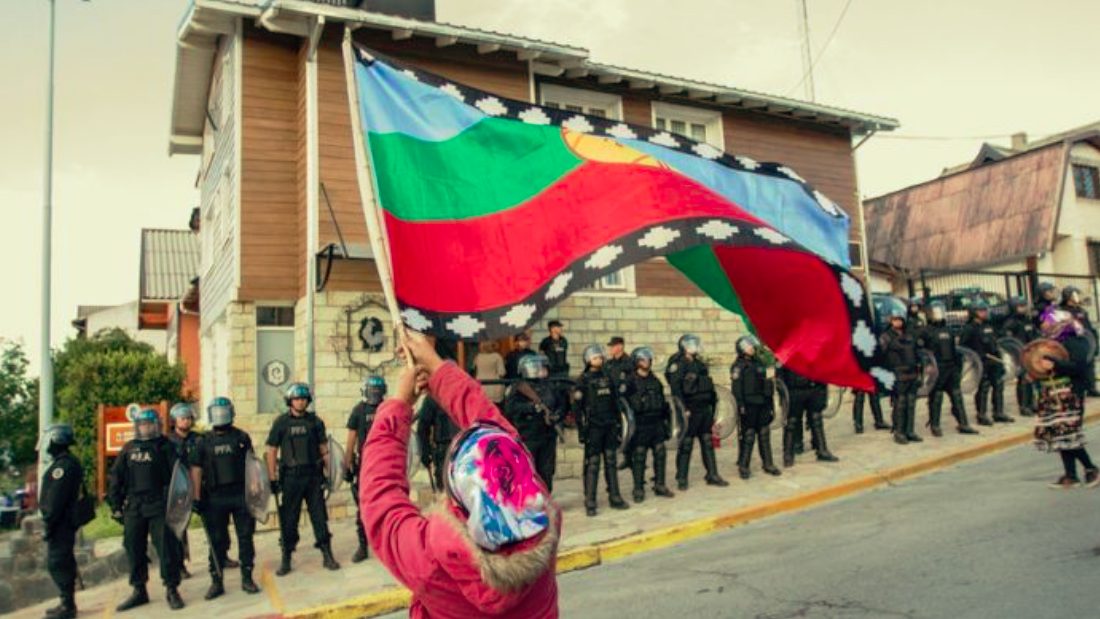RIO DE JANEIRO, BRAZIL – The UN Committee on the Elimination of Racial Discrimination, alarmed by the “disproportionate” use of force to the detriment of this indigenous population, has asked the Chilean government for guarantees that the Anti-Terrorist Law “will not be applied to members of the Mapuche community for acts that take place in connection with the expression of social needs,” claiming that it should not have “any discriminatory effect on” them, according to an opinion published in Geneva.
Some 12.8% of the almost 20 million Chileans are Mapuche, a often a victim of repression, which is added to the discrimination of Afro-descendants, gypsies, “Roma population, and other minorities and non-citizens,” together with candidates for asylum, and refugees, such as Haitians and Venezuelans, a phenomenon that worries the UN.
Read also: Check out our coverage on Chile
Composed of 18 independent experts elected by secret vote of the countries that have ratified the International Convention on the matter, the oldest of the UN, adopted in 1948, which underpinned the fight against “apartheid” in South Africa, the Committee recommended Chile review the Anti-Terrorism Law “so that it specifies exactly the crimes of terrorism that it covers, and adapt it to international standards.”

The Committee expressed its concern “that the ineffectiveness or absence of consultation with indigenous peoples on issues affecting land and territory has led to the conflict.” It also noted that “indigenous languages are less visible in the mainstream media and that alternative media, including community radio stations used for language revitalization, are not being supported or facilitated by the government.”
It also lamented “the desecration of sacred places such as Marta Cayulef in Pucón, Coñaripe (Los Rios) and Chinay (Villarica)”, and “the negative impact on the environment, health and traditional ways of life of” these communities by “the installation of landfills in their territories, as in Collupulli and Lautaro”.
It rejected the State’s denial of the “restitution of ancestral lands, which continues to represent the main source of tension” with the native populations.
For the 18 independent experts of the Committee, who are not UN officials, do not receive a salary, are only reimbursed per diems, and act exclusively according to their convictions, the problem of the indigenous peoples mentioned above is inscribed in the context that the Mapuche, “migrants and Afro-descendants … are regularly subjected to racial profiling by the police and other law enforcement agencies.”
At the same time, the Committee recalled the imperative that indigenous people must enjoy “procedural guarantees at all times”, setting the example “that detainees be held in prisons close to their community”, where their “culture and traditions” are respected, which requires “training courses to sensitize law enforcement and prison officials on rights, customs, rituals, and traditions”.
The battery of recommendations put forward by the Committee to remedy these and other shortcomings include “providing effective protection against racial discrimination”, ensuring that these peoples are consulted “before any investment project that could negatively impact their rights to the land and resources they own or have traditionally used is authorized, to obtain their free, prior and informed consent”.
The report also supports allocating “sufficient resources for the recovery of indigenous languages and ensure the access of Indigenous Peoples to education and promote the participation of indigenous teachers,” and adopting “legislative and other provisions necessary to reduce the limitations they face with respect to the use of community media to promote the use of” all those languages.
It adds support for accelerating “the restitution of ancestral lands and providing effective and sufficient means to protect the rights of indigenous peoples to their ancestral lands and resources,” extending in parallel the protection of the law according to international standards, to Chilean Afro-descendants, migrants, asylum seekers, and refugees, such as Venezuelans and Haitians, victims of “prejudices, stereotypes and discriminatory acts”.

